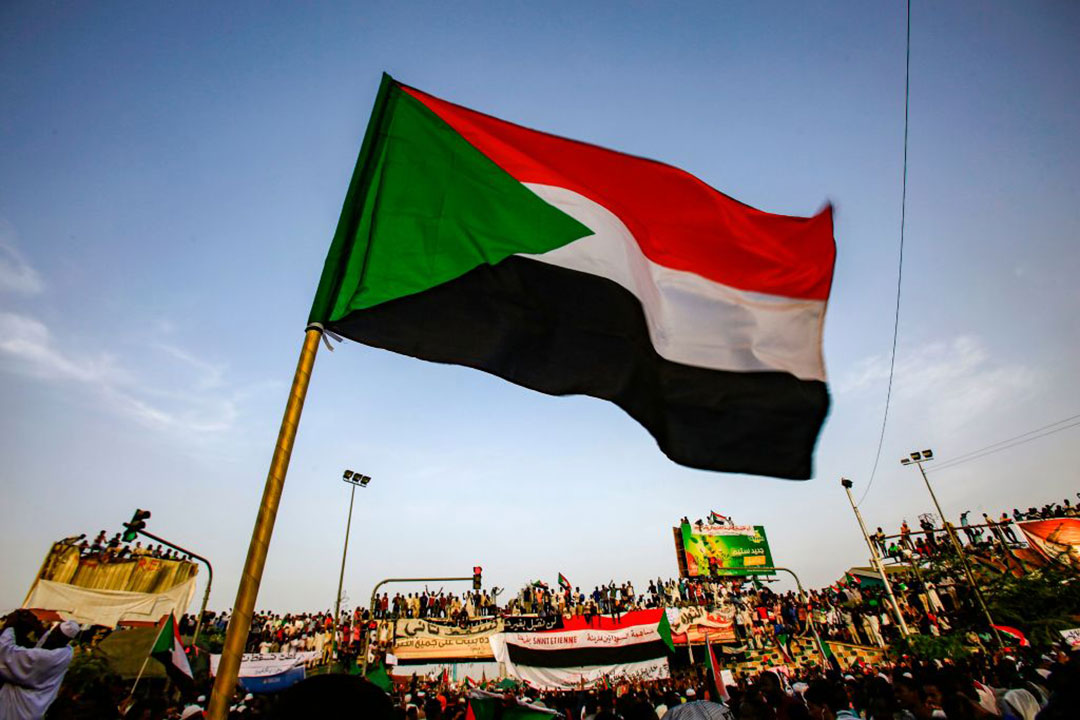Cascading Crises Threaten Sudan’s Fragile Democracy
ADF STAFF
Twenty months ago a political earthquake rocked Sudan. A popular uprising led to a military coup that ousted dictator Omar al-Bashir and sent shockwaves around the world.
Since then, revolution has given way to reality. Under the leadership of a transitional government, Sudan now faces daunting challenges, including an economic crisis, severe flooding and tensions with neighboring Ethiopia.
“Sudan is at a critical juncture,” United Nations political affairs chief Rosemary DiCarlo told the Security Council on December 8. “It can move forward decisively in its transition, but that progress can still be derailed by the many challenges it faces. It is incumbent on all of us to support Sudan in its efforts to achieve democratic governance, economic prosperity and an inclusive society for all Sudanese.”
‘A Broken System’
Years of mismanagement, the secession of South Sudan and falling oil revenue have left Sudan in an economic hole. The country owes $60 billion in external debt and is behind on payments to creditors. It has been rapidly printing Sudanese pound notes to meet some of its obligations, leading inflation to balloon to 250% this year.
Things got worse when COVID-19 struck and the country shut down for five months. Sudan’s economy will shrink by 8.4% in 2020, according to the International Monetary Fund. Bread and fuel lines are now common sights in Khartoum.
“We have inherited a broken system, so it’s full of institutional weaknesses,” Adam Elhiraika, the economic advisor to Sudan’s prime minister, told the Financial Times. “Inflation is rising because the government is having difficulty obtaining resources to finance imports, even of basic commodities. There’s a cycle of inflation and exchange rate depreciation that needs to be broken.”
But December brought a ray of hope as the U.S. made a $1 billion bridge loan to the World Bank to help Sudan erase its arrears to that institution, Bloomberg reported.
Devastating Floods
Unrelenting rains across much of the country in September led to the nation’s worst flooding in 30 years.
The floods have affected more than 875,000 people and caused at least 150 deaths. Adding to the devastation, 2.2 million hectares of cropland were destroyed, washing away staple food items like sorghum. By the end of September, 9.6 million people in the country faced acute food insecurity, the highest total ever recorded by the U.N.
Diplomacy Leads to Hope
Sudan’s economic and humanitarian challenges come at a particularly perilous time in East Africa. For much of 2020, Sudan and Egypt were locked in negotiations with Ethiopia over how quickly it will fill the reservoir in its huge GERD project on the Nile River. The dispute was never formally settled, but Ethiopia began filling the reservoir in July, leading to concerns of interstate violence.
In December, war erupted between Ethiopia’s federal government and fighters in the northern Tigray region. The fighting led more than 50,000 refugees to cross into Sudan. The Sudanese Army has been sent to the region, and there have been reports of fighting with Ethiopian forces over disputed border territory.
“If Ethiopia goes, then there goes the Horn of Africa region. And that’s something that should worry everybody, both regionally and internationally,” Hassan Khannenje of the Nairobi-based Horn International Institute for Strategic Studies told DW.com.
There have been positive developments as well. In early December the U.S. officially removed Sudan from its list of State Sponsors of Terror. The move came after a resumption of diplomatic relations between the two countries in 2019 and gives Sudan greater access to international financial markets, aid and development funding.
Prime Minister Abdalla Hamdok celebrated it as the end of a dark era. “After three decades of global isolation [Sudan] officially rejoins the international community as a peaceful nation supporting global stability,” he tweeted.
Hamdok also helped broker a peace agreement in August with rebel groups in Darfur in the country’s west and South Kordofan and Blue Nile in the south. The deal carries the promise of ending some of the continent’s bloodiest disputes. “This is a Sudanese peace, made with our own hands and by our own efforts,” Hamdok wrote on Twitter. “This is not a paper agreement, but it is a living organism that needs care, attention and political will.”
All of this occurs as Sudan prepares for a hotly contested election in 2022. International observers hold out hope that Sudan can emerge as a model for a democratic transition in North Africa, but all agree the road ahead is treacherous.
“There is an exhilarating air of hope in Khartoum that a rights-respecting democracy can be built,” Kenneth Roth, executive director of Human Rights Watch, wrote in Foreign Policy in March 2020. “Rapid international support is needed to avoid squandering this rare opportunity.”


Comments are closed.